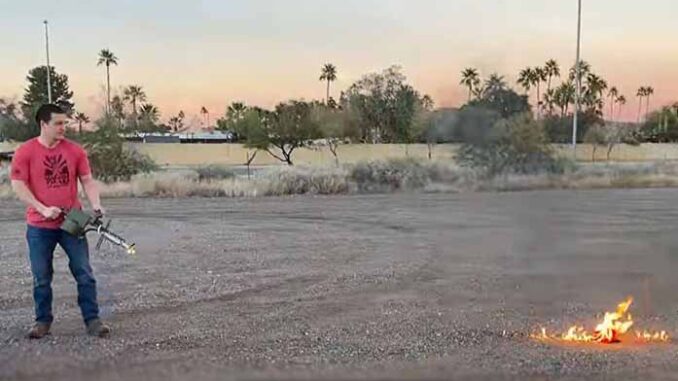
The Arizona Supreme Court will conduct oral arguments Thursday involving a defamation lawsuit a failed Republican candidate filed against popular conservative iHeartRadio personality James T. Harris.
Daniel McCarthy lost in a landslide to Rep. Martha McSally in the August 2020 primary election for U.S. Senate. Then in February 2021, McCarthy sued Harris for allegedly defaming McCarthy and besmirching his “integrity, virtue, and reputation” on two of Harris’ shows in November 2020.
The lawsuit also contended McCarthy, age 36, became concerned for his safety due to Harris’ comments. It seeks $20 million in compensatory damages and $100 million in punitive damages.
Judge Randall Warner of the Maricopa County Superior Court dismissed most of McCarthy’s claims as “name-calling” or protected opinion by Harris on is well-established and overtly political show. However, Warner ruled nine specific comments “could be” actionable defamation.
“By concluding that a particular statement could be actionable, the Court is not ruling that it is, only that it survives a motion to dismiss such that litigation may proceed,” Warner wrote in his order.
The Arizona Supreme Court is now being asked by Harris and iHeartMedia to order Warner to dismiss the lawsuit in full, arguing all of Harris’ comments on his Conservative Circus show were opinion, political speech, or rhetorical hyperbole protected by the First Amendment.
An amici curiae (friend of the court) brief filed by the Arizona Broadcasters Association, Arizona Newspaper Association, and Reporter Committee for Freedom of the Press supports Harris’ position.
A case summary prepared by the Arizona Supreme Court lists the definition of defamation as found in Black’s Law Dictionary as “malicious or groundless harm to the reputation or good name of another by the making of a false statement to a third person.”
The definition goes on to note that if the alleged defamation involves a matter of public concern, then “the plaintiff is constitutionally required to prove both the statement’s falsity and the defendant’s fault.” That puts the burden of proof on McCarthy as the party bringing the claim. .
Court records show the dispute stems from a political rally both men attended at the State Capitol in November 2020 after the General Election. While Harris was speaking, some in the crowd began chanting for McCarthy to speak.
“Harris stopped speaking and the microphone was passed to McCarthy who then began to speak to the crowd,” the case summary states. “The parties dispute the passivity or aggressiveness with which each side was acting during the rally.”
The following day, Harris spoke on his show about his interactions with McCarthy at the rally. At one point Harris referred to McCarthy’s supporters as “thugs” who were being “hostile.”
Harris stated his opinion that McCarthy “disqualified himself” from holding political office due to his action at the rally. Harris also stated he “had been told that McCarthy was not funding his campaign in the manner he had previously stated he would,” the case summary states.
Then the next day, Harris spoke again on his show about McCarthy and the rally. He described McCarthy and his supporters as heckling at and shouting down Harris during his speech, according to the case summary.
In other comments not included in the case summary, Harris called McCarthy an “a**hat” and “a sad example of a conservative.” McCarthy has been active in efforts to form a Patriot Party in Arizona.
After the lawsuit was filed, one conservative political consultant questioned McCarthy’s claim that Harris’ comments led McCarthy to fear for his own safety.
More confusion from McCarthy's lawsuit claiming he's somehow afraid for his safety. He showed up at AZGOP meeting w/o security, took the stage, and baited a crowd of 100's telling them how much their party belonged in the trash. He wasn't afraid at all. Not even a little bit.
— Constantin Querard (@CQuerard) February 4, 2021
Harris and his Conservative Circus program has aired weekdays on iHeartRadio’s News Talk 550 KFYI in the highly coveted 6 a.m. to 9 a.m. slot since January 2018. KFYI is one of 850 live broadcast stations operated by iHeartRadio, which is owned by Texas-based iHeartMedia, the number one publisher of commercial podcasts.
